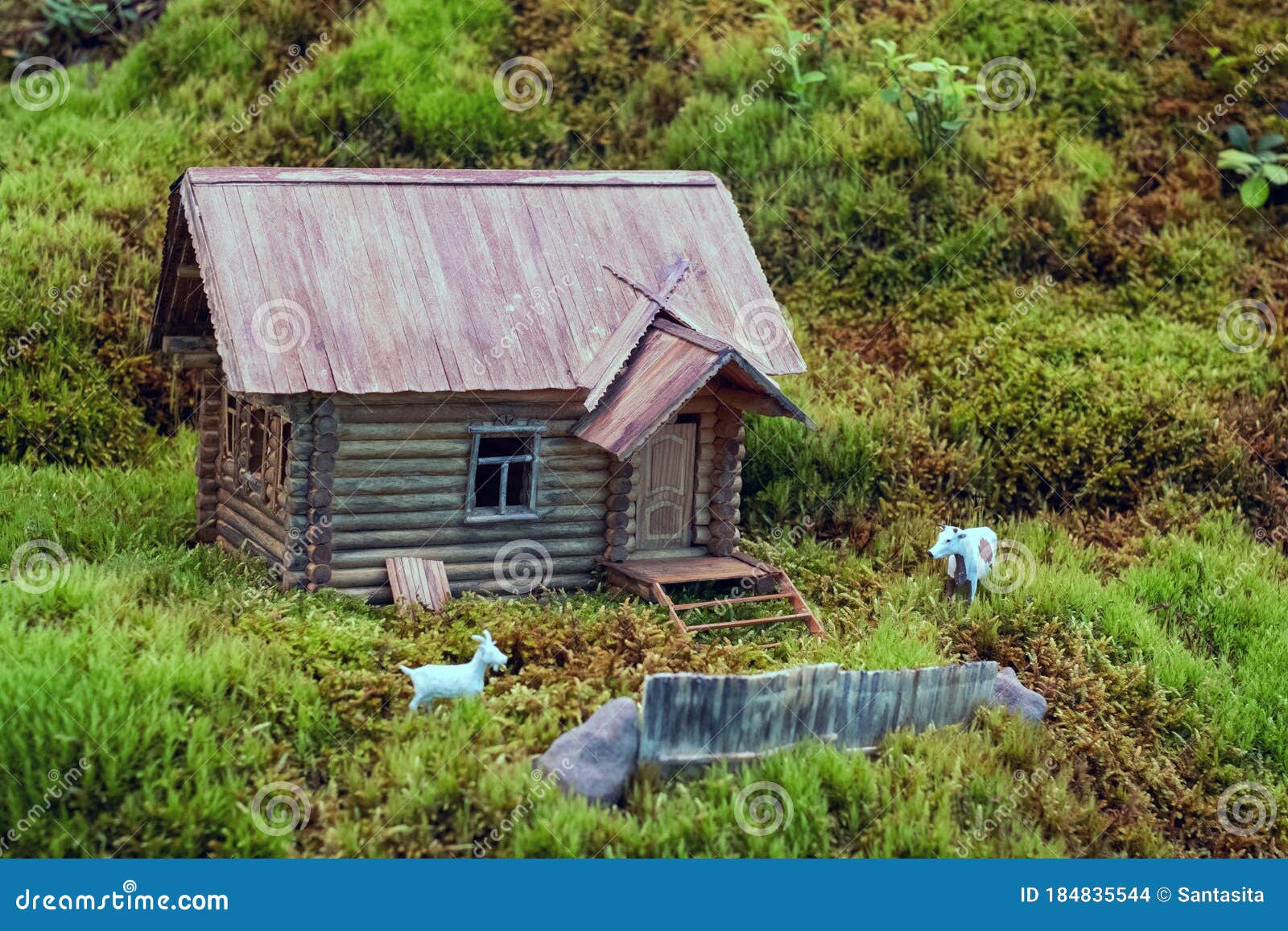Escape To The Countryside: A Realistic Look At Rural Living

Table of Contents
The Allure of Rural Living: Pros and Cons of Countryside Life
The romantic notion of a countryside escape often overshadows the practical realities. Let's weigh the benefits and drawbacks to gain a clearer perspective.
Benefits of Countryside Living:
Choosing a life away from the city offers many compelling advantages. These include:
-
Peace and quiet: Enjoy a slower pace of life, free from the constant noise and crowds of urban environments. Imagine waking up to birdsong instead of car horns – a true escape to the countryside. This peaceful atmosphere can significantly reduce stress levels and improve overall well-being.
-
Close connection to nature: Embrace the beauty of your surroundings. Hiking trails become your backyard, gardening becomes a daily joy, and outdoor activities are readily accessible. Rural living fosters a deeper appreciation for the natural world. Imagine fresh air, starlit nights, and the simple pleasure of watching the seasons change.
-
Stronger sense of community: Rural communities often boast a strong sense of neighborly connection. You'll likely build genuine relationships with your neighbors, fostering a sense of belonging and mutual support that's often missing in larger cities. This close-knit community can be a significant source of comfort and friendship.
-
More affordable housing (potentially): Depending on the specific location and demand, rural properties can offer better value for your money compared to urban areas. However, it's crucial to research property prices in your target area before making any assumptions.
-
Increased privacy and space: Enjoy the freedom of larger properties and more personal space. This can be a significant draw for those seeking seclusion and a break from the density of city living. Imagine having a large garden, ample space for pets, and the quiet enjoyment of your own private sanctuary.
Challenges of Rural Living:
While the allure of the countryside is strong, it's essential to acknowledge the potential difficulties. These include:
-
Limited job opportunities: Employment options may be scarcer in rural areas, potentially requiring a longer commute or a shift in career path. Before making the move, thoroughly research job prospects in your chosen area.
-
Longer commutes: Distances to amenities and workplaces can significantly increase travel time. This impacts not only your daily routine but also your transportation costs. Consider the feasibility of your commute before committing to a rural lifestyle.
-
Limited access to services: Healthcare, shopping, and entertainment options might be less readily available than in urban centers. This requires careful planning and a willingness to adapt to a different pace of life.
-
Isolation and loneliness: Rural areas can feel isolating for some people, especially those accustomed to the vibrancy of city life. Building a strong support network within the community is crucial to counteracting this potential challenge.
-
Higher infrastructure costs: Maintaining rural properties, including utilities and repairs, can be more expensive than maintaining urban properties due to factors such as distance and specialized services.
Practical Considerations Before Your Countryside Escape
Before you pack your bags, careful planning is essential to ensure a smooth transition.
Financial Planning for Rural Living:
A realistic budget is paramount. Consider:
-
Property costs: Research land and home prices in your desired location. Prices can vary significantly depending on the region, amenities, and property size.
-
Utilities and taxes: Understand the costs associated with rural properties, which may include higher heating bills, well maintenance, and potentially higher property taxes.
-
Transportation costs: Factor in the expense of commuting or owning multiple vehicles, especially if your workplace is a significant distance away.
-
Potential for lower income: Account for the possibility of lower earning potential in rural areas, especially if job opportunities are limited.
Essential Services and Amenities:
Assess the availability of essential services in your potential new home:
-
Internet access: Check broadband availability in your chosen area. Reliable internet is crucial for communication, work, and entertainment, even in rural areas.
-
Healthcare access: Research local hospitals and medical facilities. Travel distances to healthcare providers could be considerably longer in rural areas.
-
Shopping and grocery stores: Identify the closest options and plan accordingly. Grocery shopping may require more advanced planning and potentially longer trips.
-
Educational facilities: Consider school options if you have children. The quality and availability of schools may differ significantly between rural and urban areas.
Making the Transition Smooth: Tips for a Successful Countryside Move
A successful "Escape to the Countryside" requires preparation and a positive attitude.
Finding the Right Rural Community:
Choosing the right community is crucial for a happy rural life:
-
Visit potential areas: Spend time in different communities to get a feel for the atmosphere and speak with the locals. This firsthand experience is invaluable.
-
Talk to locals: Get firsthand insights from residents about their experiences, challenges, and the overall community spirit. Their perspectives can provide invaluable information.
-
Consider your lifestyle: Choose a community that aligns with your interests and needs, whether it's a vibrant artistic hub or a quiet, secluded village.
Preparing for a Change in Pace:
Embrace the transition and prepare for a slower, more deliberate pace of life:
-
Embrace the slower pace: Adjust your expectations and appreciate the change in rhythm. Rural life often moves at a different tempo than city life.
-
Build a support network: Connect with your neighbors and create new friendships. This will help combat feelings of isolation and create a sense of belonging.
-
Find ways to stay connected: Utilize technology to maintain relationships with people in other areas. Maintaining connections with loved ones is crucial, especially during the initial adjustment period.
Conclusion
Escaping to the countryside offers a unique lifestyle with numerous benefits, including peace, nature, and community. However, it's crucial to understand the challenges, such as limited job opportunities and access to services. Careful planning and realistic expectations are essential for a successful "Escape to the Countryside." By considering the financial implications, access to amenities, and community dynamics, you can make an informed decision that sets you up for a fulfilling rural life. Begin your journey toward a peaceful countryside existence by researching locations and carefully weighing the pros and cons of rural living. Start your Escape to the Countryside today!

Featured Posts
-
 Free Transfer Target Crystal Palace And Kyle Walker Peters
May 24, 2025
Free Transfer Target Crystal Palace And Kyle Walker Peters
May 24, 2025 -
 Dazi Stati Uniti Prezzi Moda 2024 Guida Completa
May 24, 2025
Dazi Stati Uniti Prezzi Moda 2024 Guida Completa
May 24, 2025 -
 Amundi Msci World Catholic Principles Ucits Etf Acc A Guide To Net Asset Value Nav
May 24, 2025
Amundi Msci World Catholic Principles Ucits Etf Acc A Guide To Net Asset Value Nav
May 24, 2025 -
 Ritka Porsche 911 80 Millio Forintos Extraval
May 24, 2025
Ritka Porsche 911 80 Millio Forintos Extraval
May 24, 2025 -
 Ronan Farrow And Mia Farrows Future A Comeback Story
May 24, 2025
Ronan Farrow And Mia Farrows Future A Comeback Story
May 24, 2025
Latest Posts
-
 Mia Farrow Demands Trump Be Prosecuted For Venezuelan Deportation
May 24, 2025
Mia Farrow Demands Trump Be Prosecuted For Venezuelan Deportation
May 24, 2025 -
 Mia Farrow Calls For Trumps Arrest Over Venezuelan Deportation
May 24, 2025
Mia Farrow Calls For Trumps Arrest Over Venezuelan Deportation
May 24, 2025 -
 Farrow Seeks Legal Action Against Trump Regarding Venezuelan Deportations
May 24, 2025
Farrow Seeks Legal Action Against Trump Regarding Venezuelan Deportations
May 24, 2025 -
 Mia Farrow Demands Trumps Imprisonment For Deporting Venezuelan Gang Members
May 24, 2025
Mia Farrow Demands Trumps Imprisonment For Deporting Venezuelan Gang Members
May 24, 2025 -
 Exploring Frank Sinatras Four Marriages And Their Significance
May 24, 2025
Exploring Frank Sinatras Four Marriages And Their Significance
May 24, 2025
